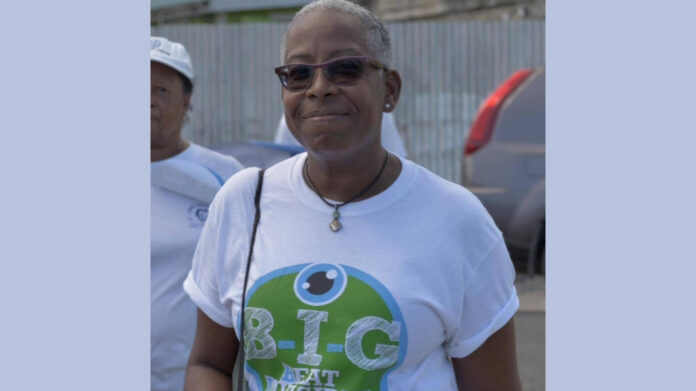By Carlena Knight
Community health advocate, Optometrist Dr Jillia Bird, is calling on top health officials to place greater focus on tackling glaucoma in the country.
Dr Bird, who is also the founding member of the Antigua and Barbuda Glaucoma Support Group, explained that, although progress has been made, there is still a lot that needs to be done with regards to open-angle glaucoma (OAG).
Primary OAG is a term used to describe a group of chronic diseases of the eye causing progressive damage to the optic nerve and resulting in painless loss of vision.
“It’s not enough; the powers that be, the people that make the decisions have to get serious with this. We have to take it on board.
“I am going to make a plug for optometrists and nurses, or we should have nurse-led glaucoma clinics operating with optometrists guiding patients and educating them because our ophthalmologists are too few and too busy, and until we take glaucoma management out of the hands of busy ophthalmologists nothing is going to change. Nothing,” Dr Bird said during an appearance on the Observer AM show yesterday.
The prevalence of OAG is highest in populations of African descent and increases with older age, affecting one in 11 persons aged 50 and older, and increasing to one in six persons over the age of 70.
Dr Bird said that increased educational drives need to be staged so that members of the public have the latest correct information at hand as OAG, unlike other cases of glaucoma, does not produce any early symptoms which makes it a very dangerous disease if not detected early.
“Vision is lost very slowly from the sides. The neurons or the retinal cells that account for peripheral vision are damaged first, and so you can have a tunnel vision and see what we call 20/20 on your eye doctor’s chart, which is the bottom line, and still have open-angle glaucoma,” she explained.
“Our understanding about what influences glaucoma has shifted so much since I qualified as an optometrist. Some research is even implicating our immune system with rogue T-cells misguided and attacking neurons in the retina, and we have to get that out to the public and let them know that you can be going blind without red, watering, painful, blurry eyes.
“Until we can change that knowledge and behaviour that have people present for what I call ‘well eye’ exams, we are never going to change those numbers,” Dr Bird warned.
She is admonishing people to get tested.
“If there’s one message I can leave with your audience – open-angle glaucoma is a silent disease. You will not know you have it unless you are tested in a variety of ways.
“So, when people come in and ask ‘do I do the glaucoma test?’ I say, ‘which one?’ We need many tests to ascertain especially in the early stages.
“It is easily missed by competent doctors. It is always missed by clueless patients and until we change our information output, which I have worked so hard at over the years, none of these numbers will ever change,” Dr Bird added.
While current treatments cannot reverse optic nerve damage, early detection and adequate treatment can limit functional visual impairment and may prevent blindness.

